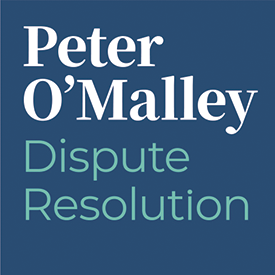It is now commonplace within the construction industry in Ireland for contractors, consultants and others who are performing works or services to be expected to provide collateral warranties. Amongst other provisions, collateral warranties create a direct contractual right of action for a third party to seek to recover losses usually arising as building defects from those who performed the original works or services. Without this direct contractual right, the vagaries of the law of negligence can cast doubt on the existence and extent of any right of action against wrongdoers. The usual beneficiaries of collateral warranties include funders, purchasers and tenants, together with unknown others in the future, to which the benefits of warranties are assigned.
In the UK, the 2013 England and Wales case of Parkwood Leisure Ltd v Laing O’Rourke 1 (Parkwood) affirmed the statutory right to invoke adjudication in disputes arising from collateral warranties under the Housing Grants, Construction and Regeneration Act 1996 (HGCRA 1996). The decision confirmed that statutory adjudication under the HGCRA 1996 could be applied not only to contracts under which the original works or services were performed, but also to claims made under collateral warranties as they were a construction contract. This was important, as adjudication, being well established in the UK as a quick and more cost-effective dispute resolution process as an alternative to arbitration and litigation could now, because of Parkwood, be invoked by the beneficiaries of collateral warranties.
However, a recent decision handed down by the Supreme Court of England and Wales in the case of Abbey Healthcare v Augusta 2 (Abbey) has now overruled Parkwood. The Abbey decision reinstates the position that applied prior to Parkwood, that the general understanding was that a collateral warranty could not be construed to be a construction contract. Accordingly, statutory adjudication invoked under the HGCRA 1996 could not be applied to collateral warranties. In reaching the decision in Abbey the Supreme Court confirmed two key points, as follows:
1. A collateral warranty will be an agreement “for … the carrying out of construction operations” for the purpose of s.104(1) HGCRA 1996 if it is an agreement by which the contractor undertakes a contractual obligation to the beneficiary to carry out construction operations, which up to now has rarely been the case. However, this obligation needs to be separate and distinct from the contractor’s obligations under the building contract and not one which is merely derivative and reflective of the same.
2. A collateral warranty where the contractor is merely warranting its performance of obligations owed to the employer under the building contract, will not be an agreement “for” the carrying out of construction operations.
In determining the case, the court found that the collateral warranty in Abbey was not considered to be a construction contract. It is notable that the decision appears not to have turned upon the specific wording of the collateral warranty in Abbey, but rather the court found that it is:
“In the interests of certainty that there is a dividing line which means that collateral warranties are generally outside the 1996 Act rather than everything being dependent on the wording of the particular collateral warranty in issue.”
This means that collateral warranties, unless they provide for a separate and distinct undertaking to carry out of construction operations, are unlikely in themselves to be considered as being construction contracts under the HGCRA 1996. As a result, a dispute arising from a collateral warranty, without separate and distinct construction operations cannot be referred to adjudication.
The construction and property industries in the UK have become accustomed to the statutory adjudication rights that were affirmed by Parkwood. The Abbey judgement now serves to remove the means of action and potential recovery through statutory adjudication, which had been generally previously available to the beneficiaries of collateral warranties in the UK through Parkwood. For parties who may have already received an adverse adjudicator’s decision based on a collateral warranty the enforceability of the decision in now be in doubt.
Abbey is now binding as authority in Scotland and Northen Ireland, whereas in Ireland, as a separate and independent jurisdiction, it can only be considered persuasive authority. In Ireland, statutory adjudication which is being increasingly used for dispute adopted provided for in legislation through the Construction Contracts Act 2013 (CCA 2013). The definition of a ‘construction contract’ in the CCA 2013 could be said to be similar, but not identical, to that in the HGCRA 1996.
The Abbey decision may provide some comfort to contractors, subcontractors and consultants who are regularly requested to provide warranties. The decision will also give rise to concern for the beneficiaries of warranties, in relation to building defects, as it precludes adjudication as a quick and efficient route for recovery.
It remains to be seen to what degree the courts in Ireland, if the situation arises, will be persuaded by the Abbey judgement. The Irish courts have and continue to provide robust support to adjudication under the CCA 2013. In this context the commentary of Simons J in the case of Aakon Construction Services Limited v Pure Fitout Associated Limited 3 (Aakon) is of direct relevance in interpreting the England and Wales judgment of Abbey, where in Aakon it was stated that:
“There is an understandable temptation for practitioners and judges in this jurisdiction to borrow from this extensive learning when interpreting and applying the Construction Contracts Act 2013. The case law from England and Wales must, however, be approached with a degree of caution. This is because there are significant differences between the legislative approaches adopted in the two jurisdictions.”
Whilst it is the case that whilst Abbey is of interest, in the context of the overall development of construction law in other jurisdictions, the judgment is not conclusive in Ireland.
1 Parkwood Leisure Ltd v Laing O’Rourke Wales and West Ltd [2013] EWHC 2665 (TCC).
2 Abbey Healthcare (Mill Hill) Ltd v Augusta 2008 LLP (formerly Simply Construct (UK) LLP) [2024] UKSC 23.
3 Aakon Construction Services Limited v Pure Fitout Associated Limited [2021] 161 MCA.

